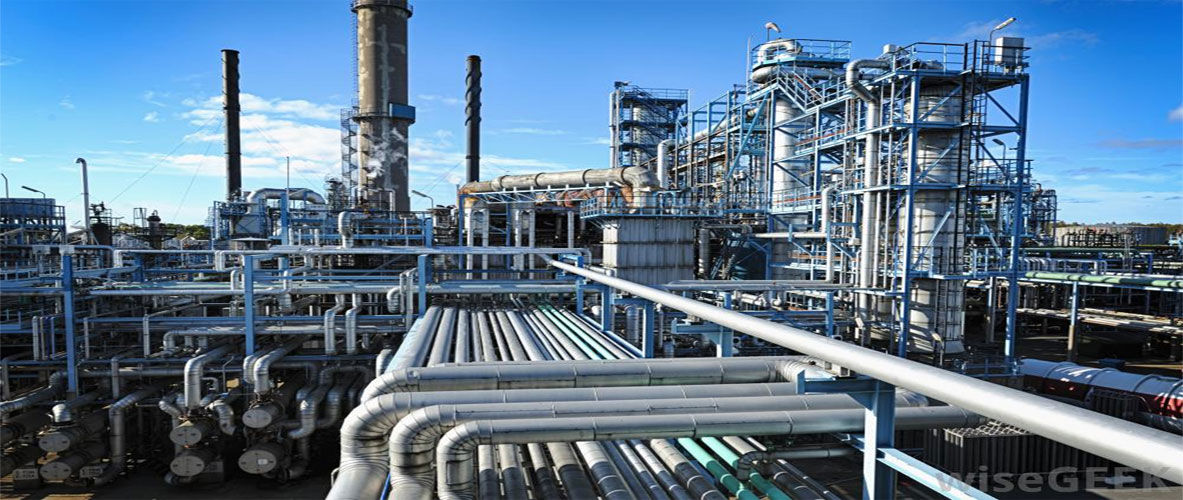chemical plant ,Petrochemical plants ,chemical processes Info chemical Man
A chemical plant is an industrial process plant that manufactures (or otherwise processes) chemicals, usually on a large scale. The general objective of a chemical plant is to create new material wealth via the chemical or biological transformation and or separation of materials. Chemical plants use specialized equipment, units, and technology in the manufacturing process. Other kinds of plants, such as polymer, pharmaceutical, food, and some beverage production facilities, power plants, oil refineries or other refineries, natural gas processing and biochemical plants, water and wastewater treatment, and pollution control equipment use many technologies that have similarities to chemical plant technology such as fluid systems and chemical reactor systems. Some would consider an oil refinery or a pharmaceutical or polymer manufacturer to be effectively a chemical plant.
Petrochemical plants (plants using chemicals from petroleum as a raw material or feedstock ) are usually located adjacent to an oil refinery to minimize transportation costs for the feedstocks produced by the refinery. Speciality chemical. and fine chemical plants are usually much smaller and not as sensitive to location. Tools have been developed for converting a base project cost from one geographic location to another.
Chemical plants use chemical processes, which are detailed industrial-scale methods, to transform feedstock chemicals into products. The same chemical process can be used at more than one chemical plant, with possibly differently scaled capacities at each plant. Also, a chemical plant at a site may be constructed to utilize more than one chemical process, for instance to produce multiple products.
A chemical plant commonly has usually large vessels or sections called units or lines that are interconnected by piping or other material-moving equipment which can carry streams of material. Such material streams can include fluids (gas or liquid carried in piping) or sometimes solids or mixtures such as slurries. An overall chemical process is commonly made up of steps called unit operations which occur in the individual units. A raw material going into a chemical process or plant as input to be converted into a product is commonly called a feedstock, or simply feed. In addition to feedstocks for the plant as a whole, an input stream of material to be processed in a particular unit can similarly be considered feed for that unit. Output streams from the plant as a whole are final products and sometimes output streams from individual units may be considered intermediate products for their units. However, final products from one plant may be intermediate chemicals used as feedstock in another plant for further processing. For example, some products from an oil refinery may used as feedstock in petrochemical plants, which may in turn produce feedstocks for pharmaceutical plants.
Either the feedstock(s), the product(s), or both may be individual compounds or mixtures. It is often not worthwhile separating the components in these mixtures completely; specific levels of purity depend on product requirements and process economics.


Leave a comment